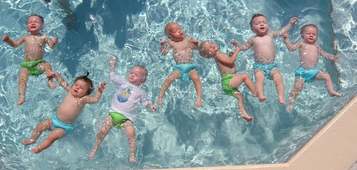weekly column
|
Each week, find a commentary on something connected to verses of Torah or another source of wisdom
|
|
Each week, find a commentary on something connected to verses of Torah or another source of wisdom
|
 The Exodus:5 Project The daughter of Pharaoh came down to bathe in the Nile, while her maidens walked along the Nile. She spied the basket among the reeds and sent her slave girl to fetch it. Exodus 2:5 I have written before about my friend Heather Booth. She has, over the course of her adult life, changed the world through ideas and organizing. Lots of people have stories about her; now there is a documentary that tells them. But I get to tell mine. She and I were engaged to develop a curriculum for synagogues wanting to pursue social justice causes. The curriculum never came to be, but a friendship did. It started when I asked her what motivated her activism. She told me a peculiar parable. She said that if there were a town by a river and suddenly the cry went out that babies were drowning in the river, the response of most people would be to run down to the banks and start rescuing babies. She instead would run upstream to stop the babies from falling into the river in the first place. Lots of people scoff at the story – how would babies fall into a river, they want to know. These are folks who don’t read the Bible. We owe the existence of Jewish tradition and every religion that emerged from it to a baby in a river. Moses’ mother Yokheved tried to keep her baby at home despite Pharaoh’s decree that all male infants be thrown into the Nile. In the end, she followed the letter if not the spirit of the law when she made a basket of reeds and waterproofed it with pitch and tucked her wonderful child into it. Then, she set it afloat on the Nile in the hopes that someone would rescue him. But was Moses the only baby afloat on the Nile? Was his mother the only one who loved her child so dearly that she went to such a length to save his life? I don’t have evidence for an answer either way, but we do know that when this basket was discovered by the daughter of that self-same Pharaoh, she knew immediately that it was a “Hebrew baby.” Was this a unique experience for a prescient young woman, or were Egyptians accustomed to the desperate cleverness of the Israelite slaves? Another friend, Peter Pitzele, holds open the delicious possibility that many Hebrew babies grew up in Egyptian homes. (It would explain a lot – the mixed multitude that left Egypt with the Israelites, the “ransom” of valuables paid by the Egyptians to the departing slaves and the survival of sons assumed to be first-born in some households.) These are the people who ran down to the river banks to rescue the babies. Pharaoh’s daughter, a hero by circumstance or divine intention, deserves the deepest gratitude of Moses’ parents and the Jewish people. But she was no Heather Booth. She did not run upstream to prevent the babies from falling in. Her act of defiance against her father was no small thing – bringing the Hebrew child and his nanny/mother into the palace – but in the end, Pharaoh’s decree and his attempts to oppress and repress our slave ancestors continued unabated until another hero arose. Ironically, it was Moses. What would the upstream run have looked like? Perhaps knowing the compassion of the Egyptian people, it might have meant a gathering on the steps of the palace to demand a change. Or perhaps a corps of Egyptian mothers might have appeared where the river’s edge met the settlement of the Israelites and offered to foster their boys. Maybe, despite the taskmasters, the artisans and craftsmen who made and laid bricks might have slowed their work or stopped it entirely in protest of the policy. I am sorry we have no such model on which to rely at this moment in our sacred Scripture. The courage of the individual is nothing to sneeze at, but collective action doesn’t turn up for many chapters, and then on the wrong side of the Golden Calf affair. Fortunately, we know today what organizing looks like. And that is in large measure because of Heather Booth and her extraordinary life. If you would like to meet here, see the movie. Or run upstream. She’s still there.
0 Comments
Leave a Reply. |
Archives
October 2023
Categories |